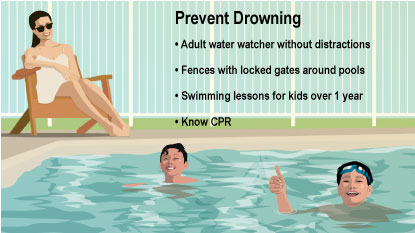Find a Provider
From well-child visits to specialized treatment of complex illnesses and injuries, we offer comprehensive care from an exceptional team of doctors, nurses and allied professionals.
- Parents Home
- Para Padres
- A to Z Dictionary
- Allergy Center
- Asthma
- Cancer
- Diabetes
- Diseases & Conditions
- Doctors & Hospitals
- Emotions & Behavior
- First Aid & Safety
- Flu (Influenza)
- Food Allergies
- General Health
- Growth & Development
- Heart Health & Conditions
- Homework Help Center
- Infections
- Newborn Care
- Nutrition & Fitness
- Play & Learn
- Pregnancy Center
- Preventing Premature Birth
- Q&A
- School & Family Life
- Sports Medicine
- Teens Home
- Para Adolescentes
- Asthma
- Be Your Best Self
- Body & Skin Care
- Cancer
- Diabetes
- Diseases & Conditions
- Drugs & Alcohol
- Flu (Influenza)
- Homework Help
- Infections
- Managing Your Weight
- Medical Care 101
- Mental Health
- Nutrition & Fitness
- Q&A
- Safety & First Aid
- School, Jobs, & Friends
- Sexual Health
- Sports Medicine
- Stress & Coping
Drowning Prevention
What Steps Can Help Prevent Drowning?
Drowning is a leading cause of death in children and teens. Among young children, most drownings happen in home pools or hot tubs. In teens, drowning is more likely to happen in oceans, lakes, and rivers. It happens fast and is usually silent. Be sure to use all these layers of protection. You never know which one will save a life.
Prevent Drowning: Assign a Water Watcher
There should always be an adult water watcher while children are in and around a pool or any body of water. The water watcher should be within an arm’s length of young children and beginner swimmers. They should always keep their eyes on kids who are in the water, even older children who can swim. The water watcher should not use a cellphone, socialize, drink alcohol, or do anything else that might be a distraction. At a party, have adults take turns as water watcher. Even if a lifeguard is on duty, a water watcher also should watch kids.
Prevent Drowning: Use Fences/Alarms/Covers
All pools (including above-ground pools) and hot tubs should have a fence around them with a self-closing, locked gate. Add even more protection with door and window alarms that chime when opened to alert a parent that a child is going outside (you can find inexpensive, simple alarms online) and pool alarms that go off when someone enters the pool. If you can’t fence around a spa or hot tub, be sure they are securely covered when you aren’t using them.
Prevent Drowning: Have Kids Take Swim Lessons
Schedule swimming lessons for kids when they’re at least 1 year old. Swim lessons do not replace the need for a water watcher, but learning to swim makes drowning less likely. Check with your local recreation centers or search the Red Cross website for classes taught by a qualified instructor. Ask about free or reduced rate lessons. If you don't know how to swim, consider taking lessons too.
Prevent Drowning: Learn CPR
Every parent should know how and when to do CPR. It brings blood to the heart, brain, and other organs and starts breathing until health care providers can give the person advanced life support. Done correctly, CPR can save a person's life.
Prevent Drowning: Use Life Jackets
Children and adults should wear Coast Guard-approved life jackets while on a boat (even if they can swim). Life jackets that are in a cabinet can't protect someone from drowning if they are suddenly thrown into the water. Water wings and other “floaties” do not protect children from drowning. Life jackets and “floaties” should be used along with — not instead of — adult supervision.
Prevent Drowning: No Alcohol or Drugs
Alcohol and/or drug use increases the risk of drowning while swimming or boating. Talk to your teens about these risks. Set a good example by making sure all water watchers and boat drivers do not use alcohol or drugs.
Prevent Drowning: Check Up on Home Safety
Empty all bathtubs, baby pools, and water buckets after use. Put locks on bathroom doors and toilets and consider more home water safety improvements.
Prevent Drowning: Talk to Teens
Even teens who are strong swimmers are at risk of drowning. Talk to your teens about never swimming alone and other ways to stay safe in the water.


© 1995- The Nemours Foundation. KidsHealth® is a registered trademark of The Nemours Foundation. All rights reserved.
Images sourced by The Nemours Foundation and Getty Images.


